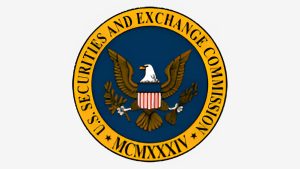After two years of rigorous public deliberation, the U.S. Securities and Exchange Commission (SEC) has given its nod to the nation's first-ever national climate disclosure rules on March 6, 2024. The approved rules mandate publicly listed companies to report their climate-related risks and, in some instances, their greenhouse gas emissions.
However, the approved regulations are notably less stringent than the initially proposed ones. The SEC abandoned a contentious plan requiring companies to report Scope 3 emissions, encompassing emissions throughout the company's supply chain and customers' product usage.
While larger companies must disclose Scope 1 and 2 emissions emanating from their operations and energy use, the disclosures are contingent on the company's belief that the information would be financially "material" to a reasonable investor's decision-making process.
In a broader sense, the new rules necessitate publicly listed companies to disclose climate-related risks with a material impact on their business. Companies are also required to disclose their risk management strategies and related corporate targets.
The impetus behind these climate disclosure rules, according to SEC Chairman Gary Gensler, lies in the financial materiality of climate-related risks and greenhouse gas emissions, as demanded by investors. Institutional investors, advocating for increased transparency and consistency in corporate climate-risk disclosures, have been vocal in recent years.
Although many large companies voluntarily disclose such information in sustainability or ESG reports, the SEC and proponents argued that mandating consistency in disclosures makes sense, given the demand from investors.
The heart of the debate surrounding the new disclosure rule revolves around the cost-benefit analysis. The compliance costs for publicly listed companies are estimated to be substantial, with potential indirect costs affecting how companies conduct their operations and potential implications for employment in certain sectors.
Enforcing consistent measurement of emissions and climate-risk exposure presents practical challenges, despite reporting standards and guidelines from international groups. Measuring Scope 3 emissions, especially indirect emissions from the supply chain, poses significant challenges and opens up legal issues.
The SEC's decision to scale back the rules regarding Scope 3 emissions resulted from backlash over the inherent challenges in measuring them. Many companies may need to outsource the estimation of emissions and climate risks to third-party entities, raising concerns about higher costs, conflicts of interest, and greenwashing.
The SEC is not the first to adopt climate disclosure rules. Similar regulations took effect in the European Union in January 2024 and California has enacted even more stringent rules, set to go into effect in 2026 and 2027. The recent conservative backlash against companies focusing on ESG issues adds an intriguing dimension to how these corporate climate disclosures will impact investor and corporate decisions.






















